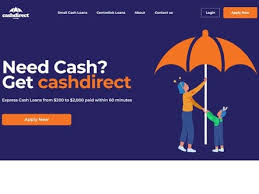When financial needs arise unexpectedly, finding reliable funding can be challenging—especially for individuals with poor credit scores. However, having a low credit score doesn’t entirely shut the door on borrowing. There are accessible loans for bad credit that offer competitive rates and simple approval processes. These loans are designed to support borrowers during emergencies without adding significant financial strain. Among the popular options, low interest loans

Understanding Loans for Bad Credit
What Does “Bad Credit” Mean?
A bad credit score usually reflects a history of missed payments, defaults, or high credit utilization. This makes many traditional lenders hesitant to offer loans. Yet, having bad credit doesn’t always imply financial irresponsibility. Life events such as medical emergencies, job loss, or personal crises can impact a person’s credit history.
The Need for Specialized Loan Options
Borrowers with lower credit scores often face higher interest rates or loan denials from conventional financial institutions. Low interest loans for bad credit serve as a bridge, helping these individuals manage urgent expenses without falling into unmanageable debt. These loans often have flexible eligibility criteria, shorter processing times, and tailored repayment plans.
Types of Low Interest Loans Available
1. Secured Personal Loans
Secured loans require collateral such as a vehicle, jewelry, or other valuable assets. Because the loan is backed by a physical asset, lenders typically offer lower interest rates. This arrangement lowers the risk for the lender while giving the borrower a chance to access funds despite poor credit history.
2. Unsecured Personal Loans
Unsecured loans do not require collateral but might come with slightly higher rates. Lenders offering unsecured loans for bad credit usually assess other factors such as employment history, monthly income, and current debt-to-income ratio. Though the interest might be slightly higher than secured loans, the absence of collateral can be appealing.
3. Peer-to-Peer Lending
Peer-to-peer lending platforms connect borrowers directly with individual investors. These loans can sometimes offer more competitive rates and flexible terms. However, approval can depend on how well a borrower presents their repayment ability and reason for the loan.
4. Credit Union Loans
Although not always advertised, credit unions can be more flexible than banks when lending to individuals with low credit scores. Membership may be required, and loan terms can vary, but they’re generally more lenient with interest rates.
5. Cash Advance Loans
Cash advance loans offer fast cash, typically for short durations. These loans are beneficial when the need is urgent, such as covering utility bills, rent, or small emergency expenses. While easy to obtain, it’s important to ensure that repayment can be managed to avoid additional fees.
How to Improve Your Loan Eligibility
Review and Monitor Your Credit Score
Begin by checking your credit score to understand your financial standing. Even small improvements—like paying down existing debt or correcting errors on your report—can increase the likelihood of loan approval.
Choose the Right Loan Amount
Request only what you need. Lenders are more likely to approve smaller loan amounts, especially when the borrower has a low credit score.
Provide Proof of Income
Showcasing a stable income source, whether from employment or self-employment, assures lenders of your ability to repay the loan.
Keep Existing Debts in Check
If you already have loans or credit cards, maintain regular payments and avoid missing deadlines. Demonstrating responsible debt management goes a long way in building lender trust.
Responsible Borrowing Practices
Assess Loan Terms Carefully
Before accepting any loan offer, review all terms, including repayment duration, penalties, fees, and interest rates. Opt for a loan that aligns with your monthly budget to prevent further financial issues.
Plan a Repayment Strategy
Before taking out a cash advance or any other type of credit, ensure you have a plan to repay it within the stipulated timeline. Late payments can worsen your credit score and result in additional costs.
Avoid Taking Multiple Loans Simultaneously
Taking out multiple loans at once can lead to a cycle of debt that’s difficult to escape. Borrow what’s necessary, and focus on repaying that loan before seeking additional credit.
Benefits of Low Interest Loans for Bad Credit
- Lower Financial Burden: Compared to payday or high-interest loans, low interest loans reduce the risk of falling into long-term debt.
- Accessible Funding: These loans provide access to cash when conventional options are unavailable.
- Faster Processing: Many lenders process applications quickly, with funds available within one to two business days.
- Credit Improvement Opportunity: Timely repayment of such loans can positively impact your credit history, gradually improving your score.
Risks to Be Aware Of
While loans for bad credit can be helpful, there are still risks to consider. Some lenders may impose hidden charges or predatory interest rates under the guise of helping bad credit borrowers. It’s crucial to research thoroughly, read the fine print, and verify lender credibility.
Conclusion
Although having a poor credit score presents borrowing challenges, it does not exclude you from accessing the financial support you need. Loans for bad credit with low interest rates and manageable terms are practical tools that can help you navigate temporary financial shortfalls. When used wisely, a cash advance or personal loan can offer immediate relief and even contribute toward improving your long-term credit standing.
Ensure you make informed choices by comparing options, understanding all terms, and planning a clear path to repayment. Responsible borrowing, even during difficult financial times, sets the foundation for stronger future financial health.